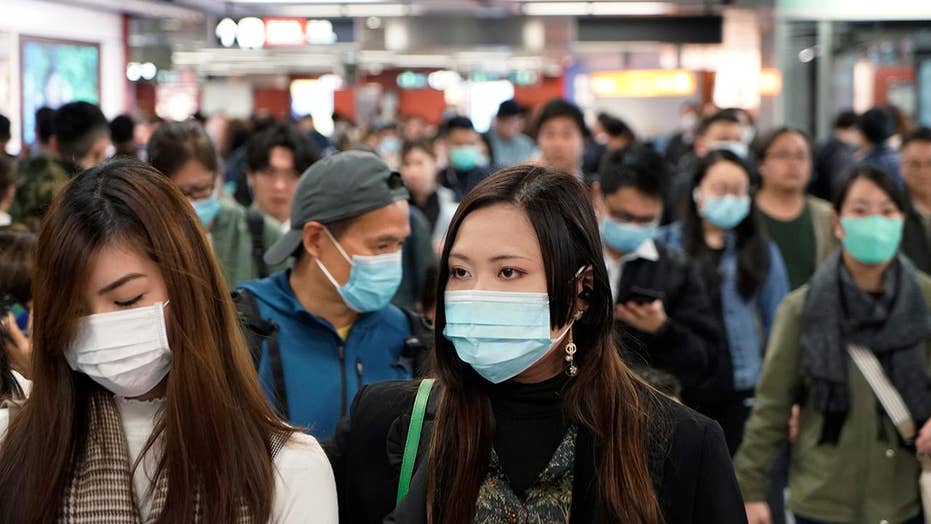
Officials address CDC confirmation of first case of coronavirus in Chicago area
Amid the deadly outbreak of coronavirus in China that’s killed at least 26 people and sickened hundreds of others, officials in the country are encouraging the public to wear surgical masks to prevent the spread of disease. Demands for the masks have skyrocketed, with many retailers unable to keep up.
But the question remains: Do surgical masks really work?
CHINA CORONAVIRUS OUTBREAK SENDS COUNTRY SCRAMBLING TO BUILD HOSPITAL
“Surgical masks will not prevent your acquiring diseases,” said Dr. William Schaffner, a professor of preventive medicine and infectious diseases at Vanderbilt University, and the medical director of the National Foundation for Infectious Diseases, to Fox News.
Rather, he explained, surgical masks are typically used by surgeons to protect their patients from their mouth-borne germs — but “those masks don't work to prevent inhaling diseases,” said Schaffner.
The masks, which cover the nose and mouth, are often made from a flimsy material and aren’t fitted to the face. In other words, spaces and gaps can form around the cheeks and edges of the mouth, making it easy for air to move in and out.
US AIRPORTS DISPLAYING CDC WARNING POSTERS AMID CORONAVIRUS OUTBREAK
“When coughing, you can feel the puffs of air coming out of the mask,” he said.
That said, the Centers for Disease Control and Prevention (CDC) is currently recommending anyone infected with the novel coronavirus or being tested for it to wear a surgical mask when in public. And one infectious disease physician told The New York Times the masks could block “large respiratory droplets” from entering your body when an infected person sneezes or coughs. These large droplets are largely behind the spread of coronaviruses, the physician said.
A more protective mask, known as an N-95 respirator, may be more effective, said Schaffner. But, he noted, a non-medical professional using this mask is likely not using it correctly, doing little to prevent the spread of illness or inhaling a disease.
“The chance of the average person going into a pharmacy, wearing them correctly and for long periods of time is unlikely,” he said.
DR. MARC SIEGEL: 'I WOULD REALLY URGE PEOPLE NOT TO TRAVEL TO CHINA RIGHT NOW'
As for more preventative measures, Schaffner recommends “abundant hand-washing.” Other ways to stay safe can be found here.
In East Asia — namely in countries such as China, Taiwan, and Japan, among others — surgical masks are not only worn by sick people hoping to prevent the spread of illness but also for air-quality reasons as well as after natural disasters, according to a 2014 report on the history of surgical mask usage in Asia.
Source: Read Full Article